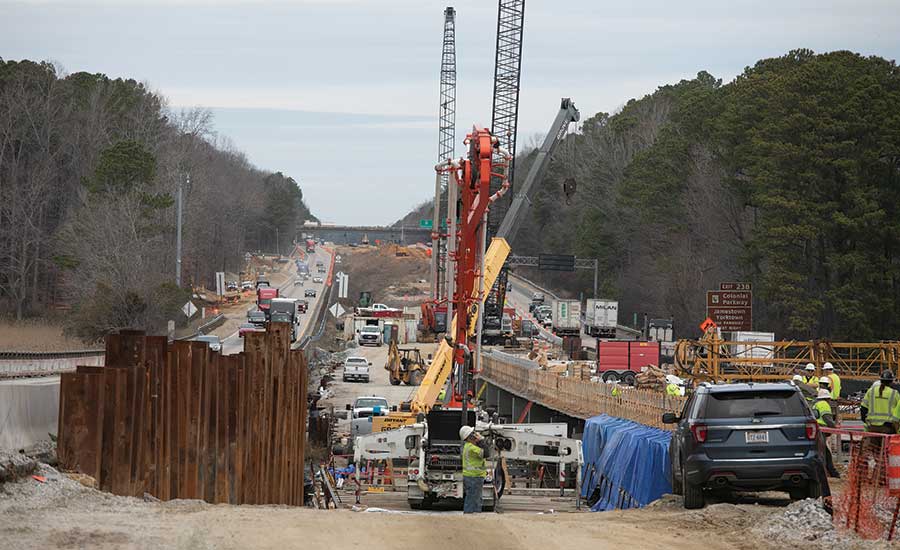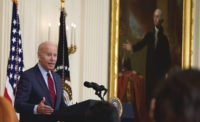Infrastructure Bills Move to the Back Burner

Industry officials want to see Congress act on funding for surface transportation and other infrastructure sectors, but a legislative vehicle has yet to emerge.
PHOTO BY TOM SAUNDERS/VIRGINIA DEPT. OF TRANSPORTATION
Early April talk about including infrastructure provisions in recovery bills related to the coronavirus pandemic has been overtaken by other priorities, such as more aid for small businesses. That has pushed public works to the sidelines, at least for now. But infrastructure advocates continue to make a case for including funds for the surface transportation and water sectors in a future recovery bill.
On March 31, four days after signing the Coronavirus Aid, Relief and Economic Security (CARES) Act, President Donald Trump called for a $2-trillion infrastructure plan. A week later he returned to the issue.“I really think that with the stimulus … we’re going to do, perhaps, infrastructure, which you wouldn’t have gotten approved before,” Trump said. “And now people are looking to do it.” He noted current low interest rates, saying, “And the beauty is we’re paying zero interest or very close to zero interest.”
On April 1, House Democrats revived and expanded a $760-billion, five-year infrastructure “framework” they rolled out on Jan. 29. After those developments, an industry source recalls, “I also thought, ‘OK, this is it and this is what we’ve been waiting for. … Given the state of the emergency, this is exactly the point in time where something like this could move.’ ”
But as COVID-19’s severe impact continues, the congressional focus by ENR press time had shifted to an emergency “CARES 2” bill. House Speaker Nancy Pelosi (D-Calif.) said April 3 on CNBC, “While I’m very much in favor of doing some things [in CARES 2] to meet the needs—clean water, more broadband and the rest of that—that may have to wait for a bill beyond this.” The industry source says, “There’s no question in my mind that infrastructure is put off.”
Industry groups are seeking to keep infrastructure in the Capitol Hill conversation. Jeff Urbanchuk, an American Council of Engineering Companies spokesman, said via email, “We may still be in the emergency response phase … where the focus is still on helping people and businesses, but Congress and the administration need to begin work now on a longer-term recovery agenda built around a robust infrastructure program.” He says House and Senate progress on highway-transit and water resources bills could “frame a recovery package quickly.”
Dave Bauer, American Road & Transportation Builders Association chief executive officer, wants Congress to use the five-year, $287-billion highway bill the Senate Environment and Public Works Committee cleared in July as a beginning point for discussions. “Economic recovery from coronavirus begins with strategic road and bridge improvements,” he said on April 13. Meanwhile, with motor vehicle travel and fuel-tax receipts down, the American Association of State Highway and Transportation Officials projects a drop of at least 30% in states’ transportation revenue over 18 months. It asked Congress for a $50-billion “backstop” so projects and plans can proceed.




